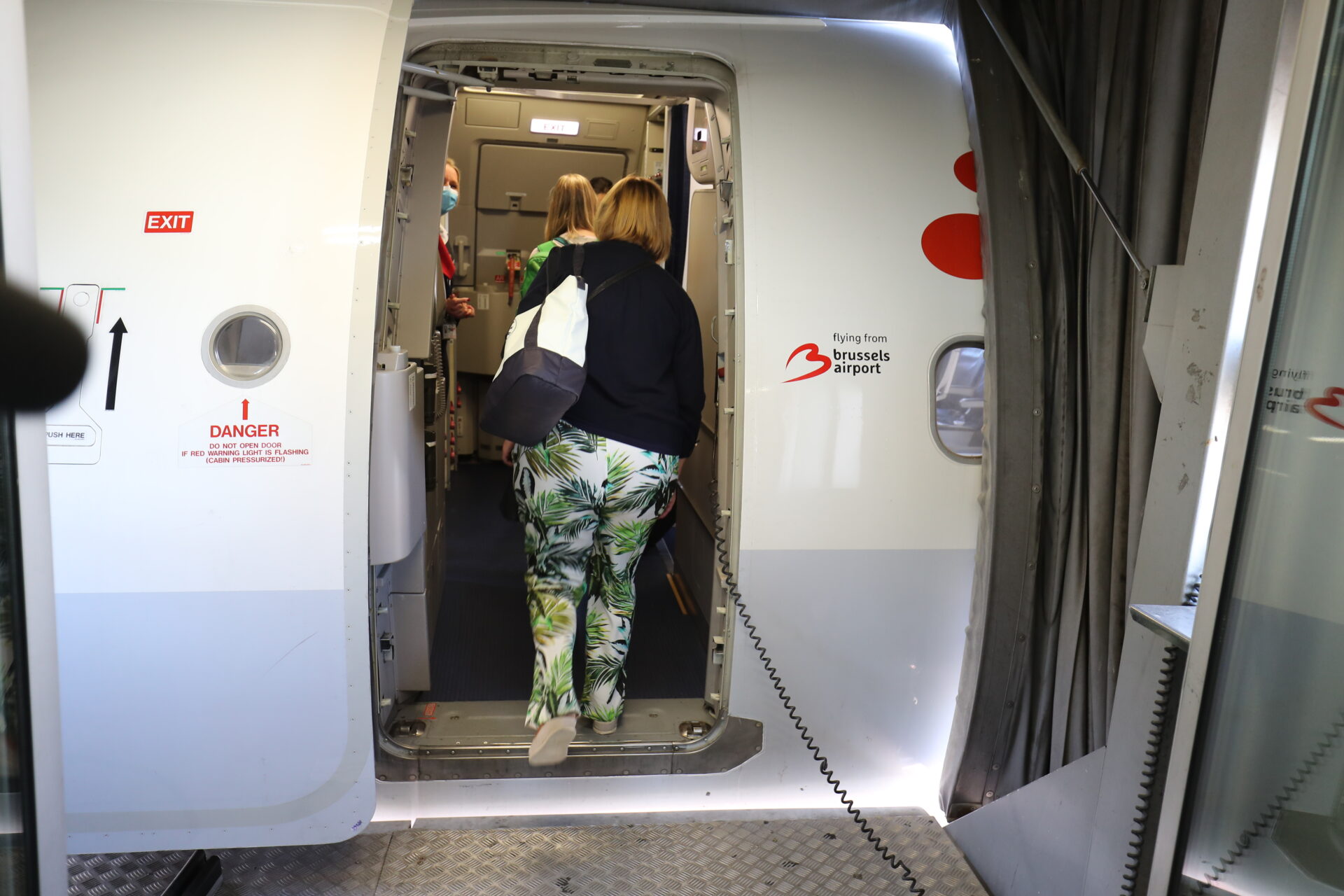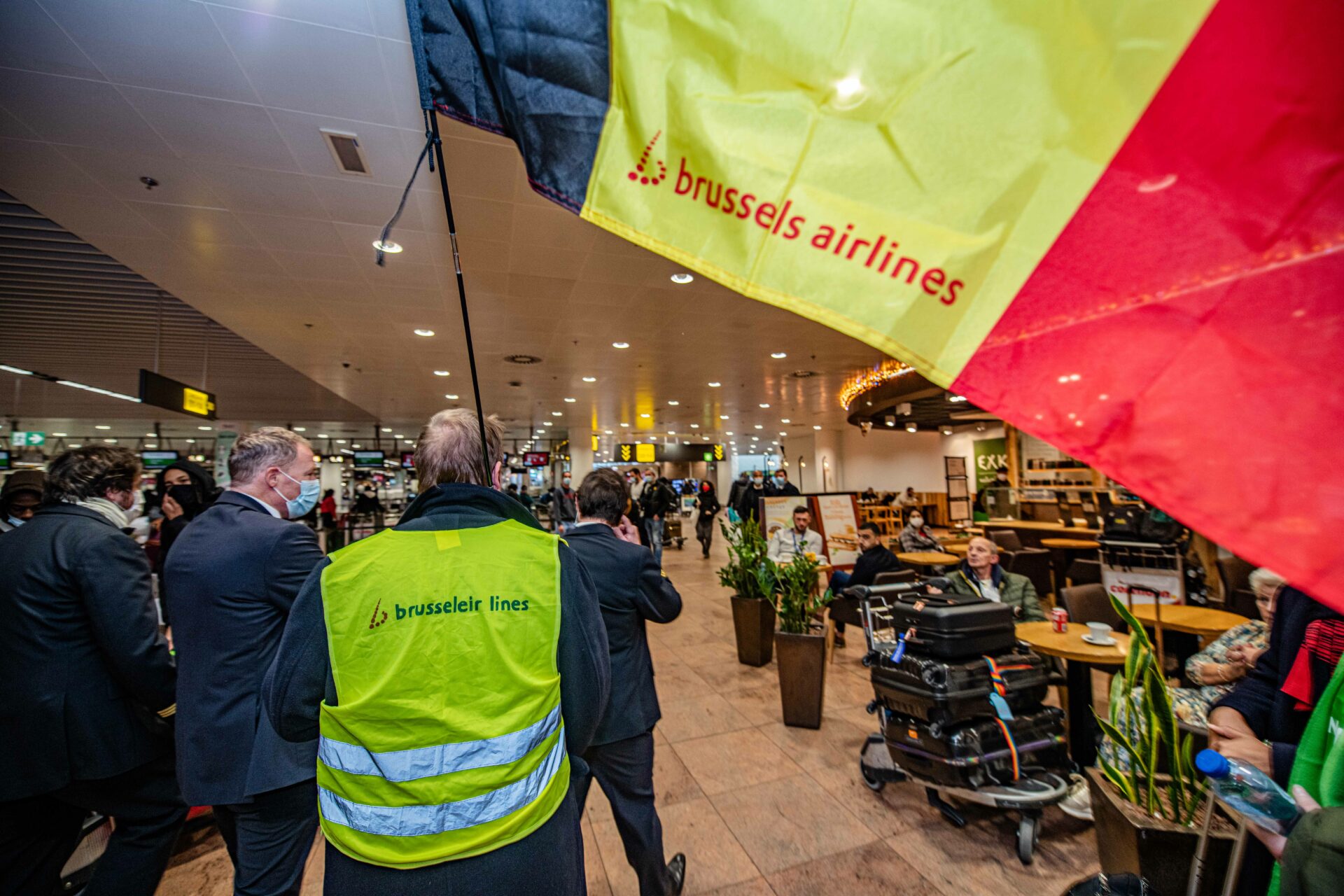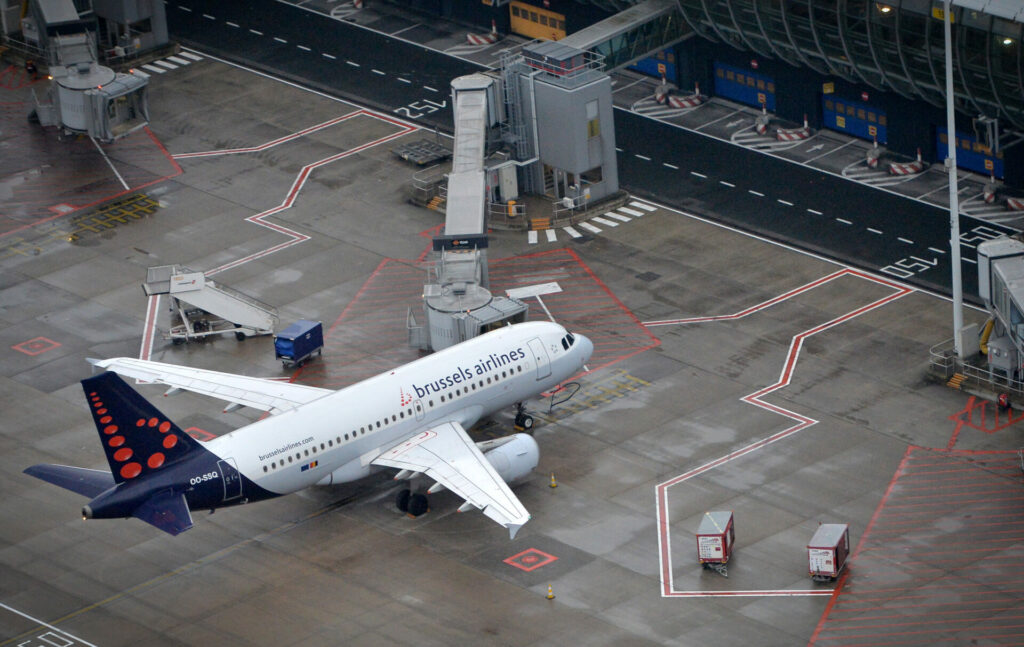Brussels Airlines reported a record profit in the third quarter of 2024. But over the year as a whole, the airline's bottom line has so far been heavily impacted by industrial action and supply chain issues.
Founded in 2002, Brussels Airlines employs more than 3,500 people and operates 44 aircraft, connecting Brussels Airport with more than 90 destinations.
Between July and September of this year, the company made a profit of €78 million (adjusted earnings before interest and taxation) – a record quarterly result for the airline and 8% higher than the same period in 2023. Brussels Airlines said record profits were due to "high punctuality".
During the third quarter , Brussels Airlines transported 2.5 million passengers on more than 17,000 flights. The number of passengers rose by 1.3% compared to the same period last year, although the total number of operated flights fell 2.5%.

Passengers board a Brussels Airlines plane at Brussels Airport. Credit: Belga/ BRUNO FAHY
Between July and September, the airline noted that 72% of flights arrived "on time" (within 15 minutes of the scheduled time), and 99% regularity (the share of scheduled flights executed within a defined timeframe).
Brussels Airlines also added a 10th long-haul aircraft to its fleet and increased its capacity to sub-Saharan Africa. Conversely, the lack of additional lease flights, especially during peak summer season, reduced the airline's capacity in Europe.
"Adding the 10th long-haul plane has a clear positive impact on our financial results. That’s why we have already decided to add three more Airbus A330’s to our fleet in the coming years. I’m happy to see a healthy Brussels Airlines that is growing and expanding in a profitable way," said Brussels Airlines chief financial officer Nina Öwerdieck.
Flying into headwinds after a strong start
However looking at the year to date, profits at the airline have almost halved compared to 2023. In the first nine months of 2024 Brussels Airlines reported a profit of €32 million (adjusted EBIT), €27 million lower than the same period in 2023.
The airline said this was mainly due to industrial actions in the first quarter, followed by lower production and engine supply chain issues in the second quarter.
It added that flight cancellations due to uncertainty in the Middle East also remain a challenge as the airline normally operates 10 to 14 flights per week to the region.

Credit: Belga / Jonas Roosens
Yet the airline remains "confident" that it will have "solid profitable results" in 2024. To offset a drop in demand during winter it will launch flights to Fuerteventura (Canary Islands, Spain) and increase frequencies to Alicante, Malaga, Valencia (Spain), Faro, Lisbon and Porto (Portugal) and Athens (Greece).
Lufthansa, the European aviation group that owns Brussels Airlines, also reported results on Tuesday. The group saw an 8% drop in profits for the third quarter (to a total of €1.1 billion), due to increased maintenance, fees and staff salary costs.
Following a series of strikes, ground staff secured an average salary increase of 12.5% at the end of March.

